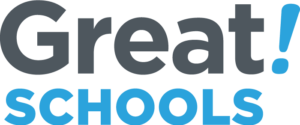

September 7, 2016
 When Nasha Fitter, a working mom of two young children, moved her family to the Bay Area, she felt overwhelmed by the process of deciding where to send her children to school. Like many parents, she wanted schools that provide great enrichment and rigorous academics. When researching schools, she could find basic stats like test scores, demographics, and clubs on GreatSchools, but found it extremely difficult to find information on the learning program, like whether music was provided or how many AP courses were offered. Again and again, she was told that the only way to get this information was to go on school tours, which were often scheduled at inconvenient hours, requiring time off work.
When Nasha Fitter, a working mom of two young children, moved her family to the Bay Area, she felt overwhelmed by the process of deciding where to send her children to school. Like many parents, she wanted schools that provide great enrichment and rigorous academics. When researching schools, she could find basic stats like test scores, demographics, and clubs on GreatSchools, but found it extremely difficult to find information on the learning program, like whether music was provided or how many AP courses were offered. Again and again, she was told that the only way to get this information was to go on school tours, which were often scheduled at inconvenient hours, requiring time off work.
She was struck by how incredibly inefficient this process was. Nasha was fortunate — she had time and resources to track down this information; she could only imagine how difficult it would be to navigate for low-income families who were struggling to make ends meet.
In this digital age, how could it be that there was not a better way to help parents gather information and narrow down their choices?
Nasha’s story reflects an all-too-familiar struggle for so many families. But her response was anything but ordinary. A problem-solver by nature, she set out to fix the problem. She approached school districts and states to request data about schools, such as course enrollment statistics and school resource allocation. She hired legal experts to help navigate government bureaucracy and data scientists to compile data into an intuitive, searchable format, and called it Schoolie.
Earlier this year, Nasha called me with an idea — what if we could scale Schoolie’s work nationally by integrating the content within GreatSchools? As a true-blooded data lover, I was clearly excited by the prospect — not just because of the data itself, but because of what I believed the data could spur.
By democratizing how information about schools is collected and shared, we can build the power of parents to advocate for their own child, as well as for all children in their community.
Because of Nasha’s insight and diligence, going forward GreatSchools will be the resource for parents across the country who don’t necessarily have time to go on all those school tours. We’re also going a step further, by including civil rights data from the U.S. Office of Civil Rights, to help parents gauge how schools provide learning opportunities to all students, regardless of race, gender, language, or ability.
Olivier’s post is an excerpt from the GreatSchools medium channel. Read the full blog here.